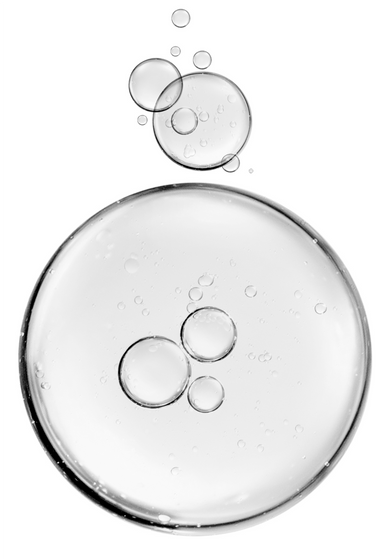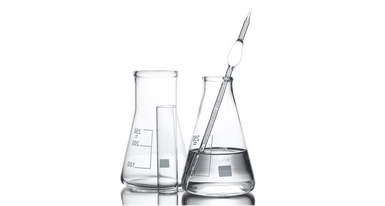THE SCIENCE
The MASI Approach to Longevity

The pursuit of longevity and vitality has eluded scientists and adventurers for years,
with the eternal
search for the
‘elixir of life’
becoming a legend.
As humans, we have an intrinsic fascination with the
idea of immortality.
While we may never achieve that goal, the latest research into longevity has shed light on the biological mechanisms that contribute to cell deterioration and aging.
The latest research has discovered new interventions that can promote healthy aging and extend lifespans. This suggests we may be able to maintain vitality and slow the aging process.
THE MEDICAL BOARD
OUR TEAM OF SCIENTISTS ARE AT THE FOREFRONT OF PIONEERING RESEARCH IN THE LONGEVITY AND HEALTH FIELDS.

At 
At 
we believe that healthy aging is not just about living longer, but about living better. How do we propose this?
By implementing a range of science-backed longevity practices. This includes creating leading life- and health-span-improving supplements, and implementing lifestyle factors such as optimal diet, exercise, and sleep routines. The Masi Approach to Longevity is based on the latest research emerging from the leading longevity laboratories across the world.
Want to learn how you can improve your health?
Let's take a deep dive into the science.
Discover the fascinating pathways to a longer, healthier life. These remarkable mechanisms include NAD signaling, autophagy, cellular senescence, and mTOR signaling.
In addition, lifestyle factors such as a nourishing diet, invigorating exercise, restful sleep, and fulfilling social connections have also been shown to play a crucial role in promoting healthy aging.

NAD Signaling
NAD Signaling
One of the key biological mechanisms that contribute to aging is NAD signaling.
Nicotinamide adenine dinucleotide (NAD) is a crucial coenzyme that plays a vital role in DNA repair and cellular metabolism1. NAD levels naturally decline with age, contributing to age-related metabolic dysfunction and neurodegeneration1. Recent studies have shown that boosting NAD levels can promote healthy aging and extend lifespan in animal models2,3.
One approach to boosting NAD levels is to supplement with the building blocks of NAD. This includes nicotinamide riboside (NR) or nicotinamide mononucleotide (NMN). These molecules are converted to NAD in the body, boosting anti-aging processes and encouraging a vibrant life.
Several clinical trials are currently underway to investigate the effects of NR and NMN supplementation on human health and aging.
Ready to learn more? Check out our blog series on NAD signaling!

Autophagy
Autophagy
Autophagy is a cellular process crucial for regulating cell production, maintaining balance, and contributing to healthy aging.
Autophagy works by clearing out damaged cells and organelles4. It’s your body’s diligent cleaner, sweeping away damaged molecules to ensure healthy reproduction. Impaired autophagy has been associated with various age-related diseases such as neurodegeneration and cancer5.
Actively promoting autophagy through supplementing and a healthy lifestyle has been shown to promote healthy aging and extend lifespan in various animal models6,7. Actively supporting autophagy with intermittent fasting, calorie restriction, and supplementing with spermidine have been shown to extend life spans in animal models8.

Cellular senescence
Cellular senescence
Cellular senescence is another key biological process that contributes to aging.
Senescence cells find themselves in a stage of irreversible growth arrest and cannot die off when they should. This means that, if damaged, they continue to multiply more damaged cells and contribute to the aging process. Cell senescence can occur in response to various cell stressors such as DNA damage, oxidative stress, or inflammation9.
While senescence can be a protective mechanism against cancer9, it can also contribute to age-related diseases, including inflammation, tissue dysfunction, and fibrosis10. Supporting the body in clearing senescent cells can have remarkable benefits to your health and lifestyle.
This support might include interventions such as supplementing with Fisetin which has been shown to extend lifespan in animal models11.

mTOR signaling
mTOR signaling
mTOR signaling is another key biological mechanism that contributes to aging.
The mammalian target of the protein rapamycin (mTOR) plays a crucial role in regulating cellular metabolism and growth. However, excessive mTOR signaling can contribute to age-related diseases such as cancer, cardiovascular disease, and neurodegeneration12,13.
Inhibiting mTOR signaling has been actively researched in the field of anti-aging. It has been shown to extend lifespan and improve health span in various animal models14.
Lifestyle Factors
The most significant impact you can have on your health and longevity is through leading a healthy lifestyle.
Focusing on diet, exercise, sleep, and social interaction ensure your body has the right building blocks for healthy intra-cell processes and biological mechanisms.

A healthy diet is the first step in giving your body everything it needs to promote healthy aging.
Studies suggest that caloric restriction and intermittent fasting promote healthy aging and extend lifespan in various animal models15. Caloric restriction involves reducing overall caloric intake while maintaining adequate nutrition. On the other hand, intermittent fasting involves alternating periods of fasting with periods of normal food intake.
Studies have shown that caloric restriction and intermittent fasting can positively impact biomarkers of aging. This includes glucose regulation, insulin sensitivity, and inflammation16.

Regular exercise supports mental wellbeing, cardiovascular health, muscle health, and promotes healthy aging.
In addition, getting your blood pumping reduces all causes of mortality and extends lifespans17–19. Exercise has been shown to reduce the likelihood of age-related diseases such as cancer, cardiovascular disease, and neurodegeneration20,21.
According to recent research, engaging in physical activity for 2.5 to 5 hours per week offers the greatest benefits to health22. On the other hand, it's been suggested that exceeding 10 hours per week of such activity may actually diminish the health benefits obtained, so don’t over-do it!

Chronic sleep deprivation has been linked to various age-related diseases.
Such as cognitive decline, cardiovascular disease, and metabolic dysfunction23,24.
Sleep plays an important role in regulating various physiological processes, including hormone regulation, immune function, and memory consolidation. Here at MASI, we recommend getting at least 7 hours of high-quality, uninterrupted sleep to give your body the chance to repair itself.

Fulfilling social connections plays an important role in promoting healthy aging.
Studies have shown that individuals who have strong support networks live longer and have better health outcomes than those who are socially isolated25,26.
Social networks can provide emotional and practical support, as well as a sense of belonging and purpose. This can help to reduce stress, improve mental health, and promote overall well-being. In fact, social isolation and loneliness have been linked to various age-related diseases, including cognitive decline and cardiovascular disease27,28.
The Masi Approach to Longevity is for anyone serious about improving their health and longevity.
Our world-leading scientific and medical advisory board composed of leading longevity researchers have devised a comprehensive anti-aging regimen for those who want to live long, prosperous lives.
Our approach incorporates the latest scientifically backed supplements. These supplements are produced to the highest European standards and incorporated into a comprehensive program that includes healthy eating, regular exercise, and other lifestyle factors to promote longevity.
-
1. Covarrubias AJ, Perrone R, Grozio A, Verdin E. NAD+ metabolism and its roles in cellular processes during ageing. Nat Rev Mol Cell Biol. 2021;22(2):119-141. doi:10.1038/s41580-020-00313-x
2. Zhang H, Ryu D, Wu Y, et al. NAD+ repletion improves mitochondrial and stem cell function and enhances life span in mice. Science. 2016;352(6292):1436-1443. doi:10.1126/science.aaf2693
3. Fang EF, Kassahun H, Croteau DL, et al. NAD+ Replenishment Improves Lifespan and Healthspan in Ataxia Telangiectasia Models via Mitophagy and DNA Repair. Cell Metab. 2016;24(4):566-581. doi:10.1016/j.cmet.2016.09.004
4. Aman Y, Schmauck-Medina T, Hansen M, et al. Autophagy in healthy aging and disease. Nat Aging. 2021;1(8):634-650. doi:10.1038/s43587-021-00098-4
5. Metaxakis A, Ploumi C, Tavernarakis N. Autophagy in Age-Associated Neurodegeneration. Cells. 2018;7(5):37. doi:10.3390/cells7050037
6. Eisenberg T, Abdellatif M, Schroeder S, et al. Cardioprotection and lifespan extension by the natural polyamine spermidine. Nat Med. 2016;22(12):1428-1438. doi:10.1038/nm.4222
7. Kiechl S, Pechlaner R, Willeit P, et al. Higher spermidine intake is linked to lower mortality: a prospective population-based study. Am J Clin Nutr. 2018;108(2):371-380. doi:10.1093/ajcn/nqy102
8. Kw C, Hy C. The Effects of Calorie Restriction on Autophagy: Role on Aging Intervention. Nutrients. 2019;11(12). doi:10.3390/nu11122923
9. Di Micco R, Krizhanovsky V, Baker D, d’Adda di Fagagna F. Cellular senescence in ageing: from mechanisms to therapeutic opportunities. Nat Rev Mol Cell Biol. 2021;22(2):75-95. doi:10.1038/s41580-020-00314-w
10. van Deursen JM. The role of senescent cells in ageing. Nature. 2014;509(7501):439-446. doi:10.1038/nature13193
11. Yousefzadeh MJ, Zhu Y, McGowan SJ, et al. Fisetin is a senotherapeutic that extends health and lifespan. eBioMedicine. 2018;36:18-28. doi:10.1016/j.ebiom.2018.09.015
12. M L, Dm S. mTOR signaling in growth control and disease. Cell. 2012;149(2). doi:10.1016/j.cell.2012.03.017
13. Ra S, Dm S. mTOR Signaling in Growth, Metabolism, and Disease. Cell. 2017;168(6). doi:10.1016/j.cell.2017.02.004
14. Sc J, Ps R, M K. mTOR is a key modulator of ageing and age-related disease. Nature. 2013;493(7432). doi:10.1038/nature11861
15. L F, L P. Promoting health and longevity through diet: from model organisms to humans. Cell. 2015;161(1). doi:10.1016/j.cell.2015.02.020
16. de Cabo R, Mattson MP. Effects of Intermittent Fasting on Health, Aging, and Disease. N Engl J Med. 2019;381(26):2541-2551. doi:10.1056/NEJMra1905136
17. Dh L, Lfm R, Hk J, et al. Long-Term Leisure-Time Physical Activity Intensity and All-Cause and Cause-Specific Mortality: A Prospective Cohort of US Adults. Circulation. 2022;146(7). doi:10.1161/CIRCULATIONAHA.121.058162
18. N G, A SL, F SG, et al. Elite athletes live longer than the general population: a meta-analysis. Mayo Clin Proc. 2014;89(9). doi:10.1016/j.mayocp.2014.06.004
19. Dc L, Rr P, Cj L, X S, Ts C, Sn B. Leisure-time running reduces all-cause and cardiovascular mortality risk. J Am Coll Cardiol. 2014;64(5). doi:10.1016/j.jacc.2014.04.058
20. Fw B, Ck R, Mj L. Lack of exercise is a major cause of chronic diseases. Compr Physiol. 2012;2(2). doi:10.1002/cphy.c110025
21. M H, Y C. Physical activity and risk of neurodegenerative disease: a systematic review of prospective evidence. Psychol Med. 2009;39(1). doi:10.1017/S0033291708003681
22. O’Keefe EL, Torres-Acosta N, O’Keefe JH, Lavie CJ. Training for Longevity: The Reverse J-Curve for Exercise. Mo Med. 2020;117(4):355.
23. Scullin MK, Bliwise DL. Sleep, cognition, and normal aging: integrating a half century of multidisciplinary research. Perspect Psychol Sci J Assoc Psychol Sci. 2015;10(1):97-137. doi:10.1177/1745691614556680
24. Van Cauter E, Spiegel K, Tasali E, Leproult R. Metabolic consequences of sleep and sleep loss. Sleep Med. 2008;9 Suppl 1(0 1):S23-28. doi:10.1016/S1389-9457(08)70013-3
25. J HL, Tb S, M B, T H, D S. Loneliness and social isolation as risk factors for mortality: a meta-analytic review. Perspect Psychol Sci J Assoc Psychol Sci. 2015;10(2). doi:10.1177/1745691614568352
26. Berkman LF, Syme SL. Social networks, host resistance, and mortality: a nine-year follow-up study of Alameda County residents. Am J Epidemiol. 1979;109(2):186-204. doi:10.1093/oxfordjournals.aje.a112674
27. Seeman TE, Lusignolo TM, Albert M, Berkman L. Social relationships, social support, and patterns of cognitive aging in healthy, high-functioning older adults: MacArthur studies of successful aging. Health Psychol Off J Div Health Psychol Am Psychol Assoc. 2001;20(4):243-255. doi:10.1037//0278-6133.20.4.243
28. Uchino BN. Social support and health: a review of physiological processes potentially underlying links to disease outcomes. J Behav Med. 2006;29(4):377-387. doi:10.1007/s10865-006-9056-5




